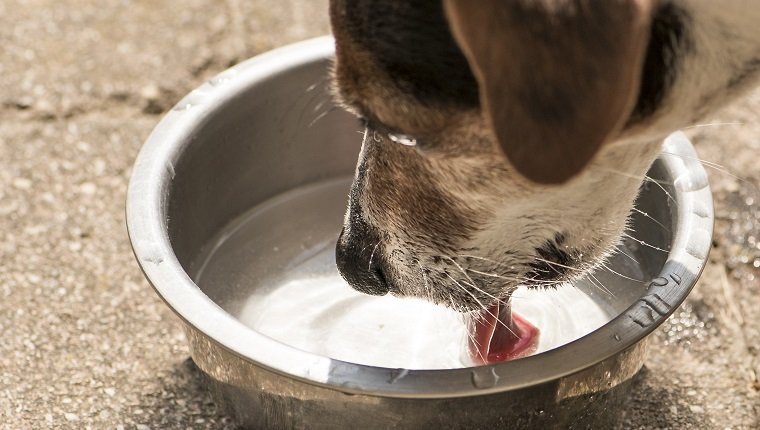Urinary tract infection (UTI) in dogs is a condition that affects the bladder, upper urethra, or both. Symptoms of UTI in dogs are especially visible during urination and often include feeling the need to urinate frequently even though little to no urine is released.
The most common cause of canine UTI is a bacterial infection that enters through a dog’s urethral opening and moves further upward into the urinary tract. Although, there are several other causes of UTIs in dogs, and they are not contagious.
You need to consult your veterinarian if you spot the signs of a UTI in your dog so that they can determine the cause and recommend treatment accordingly.
Here’s what you should know about the symptoms, causes, and treatments for urinary tract infections in dogs.
Symptoms Of Urinary Tract Infections In Dogs

The most obvious sign of UTIs in dogs is feeling the need to urinate frequently even though little or no urine is released, but there are several other symptoms that you should be on the look out for.
If you see these signs of a UTI, consult your veterinarian:
- Difficulty urinating
- Signs of pain like whimpering during urination
- Accidents in the house or places not normally used for urination
- Dribbling urine
- Excessive licking at the genitals
- Bloody or cloudy urine
- Fever
Causes Of Urinary Tract Infections In Dogs

UTIs in dogs are most often caused by bacteria that enters through the urethral opening and moves upward into the urinary tract. This bacteria frequently comes from fecal matter or other debris.
Female dogs tend to develop infections more easily as the urethral opening is closer to the anus, and male dogs have a longer urethra, which means the bacteria has to travel farther to cause infection.
E. coli, Staphylococcus, and Proteus spp. are the most common types of bacteria that cause UTIs in dogs.
Dogs with compromised immune systems either from immune disease or poor nutrition are more susceptible to urinary tract infections. Other less common causes of UTIs in dogs include cancer, bladder disease or inflammation, kidney stones or disease, diabetes, spinal cord abnormality, and prostate disease.
UTIs are not contagious through contact between dogs. You do not have to quarantine one of your pups to spare the others from a UTI. You should, however, keep their environment clean and dispose of feces quickly. This will reduce the risks of multiple health concerns.
Your veterinarian will run tests to determine the cause and rule out any other condition that may produce similar symptoms, such as stones. Once your vet has found the cause of your dog’s UTI, they will be able to begin treatment.
Treatments For Urinary Tract Infections In Dogs

Treatment for UTIs in dogs usually includes a round of antibiotics for about ten days or until symptoms disappear. The type of antibiotic used will depend on the type of bacteria causing the infection. Your veterinarian will determine this through urinalysis and possibly other tests.
In some rare, severe cases, surgery may be necessary to repair damaged tissue. Most dogs recover well after antibiotic treatment.
It’s likely that you’ll be instructed to increase your dog’s water intake with fresh water. Some vets might even recommend a water fountain for dogs so that they have a constant source of hydration, which can help prevent future UTIs, as well.
In some cases, your vet may recommend supplements or dietary changes, especially if there’s a risk of developing bladder stones.
You can also help prevent UTIs in your dog by allowing them more frequent urination breaks outside and making sure that the area around their urethral opening stays clean and clear of debris. You can get wipes to clean them and reduce the risk of bacterial infection.
Some probiotics may be helpful, and frequently checking your dog for injuries or scratches can also reduce the risk of a UTI.
Has your dog ever had a urinary tract infection? What did you do to treat it? Let us know in the comments below!









